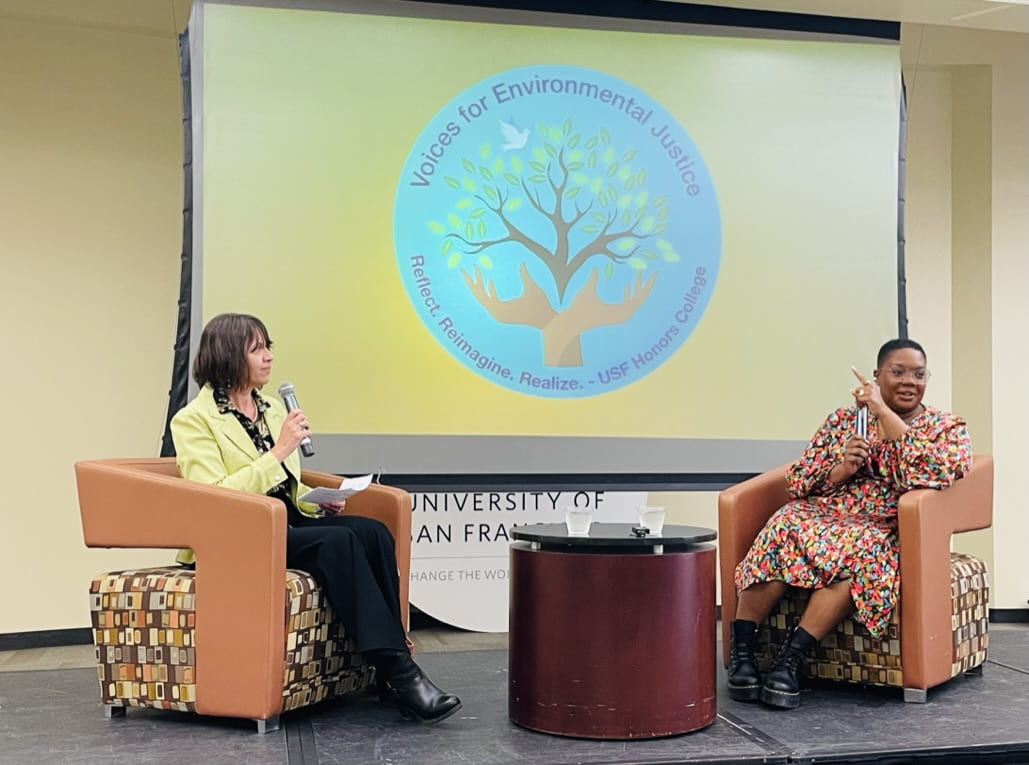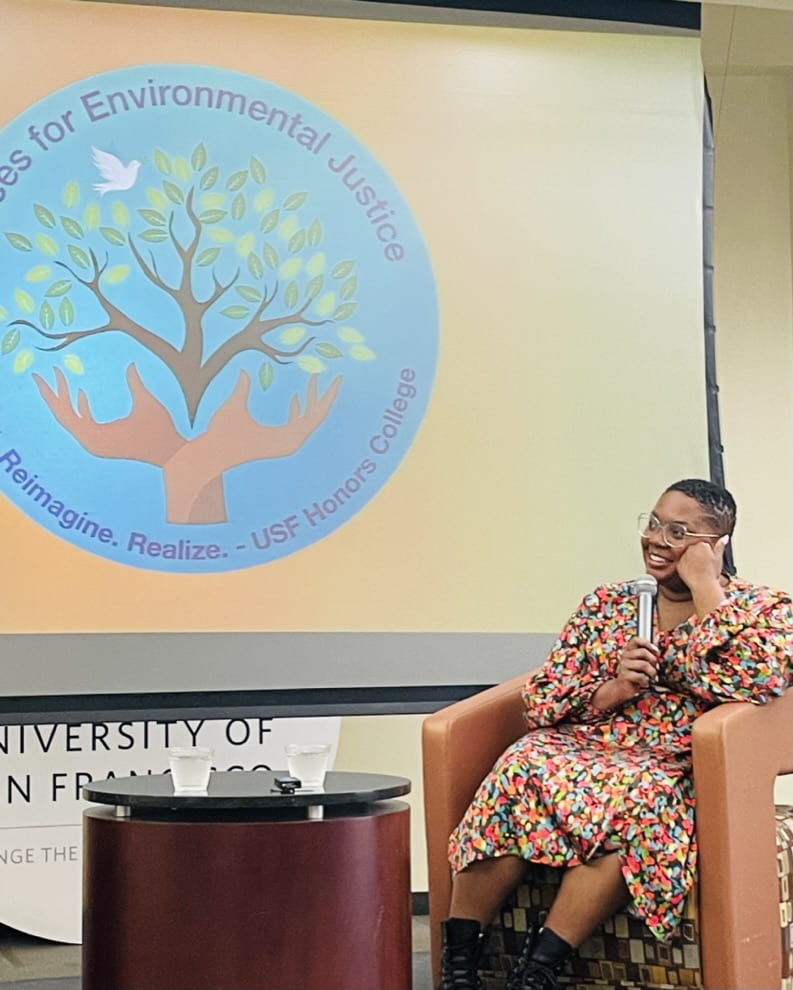Members of the USF community welcomed Rhiana Gunn-Wright to campus on Earth Day, a distinguished guest hosted by the Honors College. A senior fellow at the Roosevelt Institute, Rhiana is currently working on a book about the climate crisis – drawing on her experience working at the intersection of climate policy, public investment, racial equity, and public power. She was in conversation with Professor Stephanie Siehr, director of the MSEM program.
Earlier in her career, Rhiana was policy director for New Consensus and policy director for Abdul El-Sayed’s 2018 Michigan gubernatorial campaign. She has also worked as the policy analyst for the Detroit Health Department, acted as the Mariam K. Chamberlain Fellow of Women and Public Policy at the Institute for Women’s Policy Research, and served on the policy team for former First Lady Michelle Obama.

Key takeaways from the conversation:
1. There is no environmental justice without social justice.
In her previous role as policy director for New Consensus, Rhiana was charged with developing and promoting the Green New Deal. A key tenet of this proposed legislation was expanding the social safety net and designing the policy so that communities who have been most harmed by our past focus on fossil fuels, benefit the most in our transition to renewable energy.
“At the most basic level, the climate crisis is caused by the fact that we use fossil fuels without limit, which is rooted in racism, individualism, and colonialism. It’s not an accident that the oil and gas companies put their plants and pipelines in poor communities of color – it’s part of the business model. To change the outcome, we have to change the system,” Rhiana urged.
Changing the system requires:
- Intentionally designing mutually-beneficial solutions
- Making trade-offs in which everyone is treated equally
- Caring about the pain of others as much as our own
2. The transition to renewable energy will require more than technical solutions.
“Technical innovation is deeply important. But technology that is divorced from addressing issues of equity and power will never be complete. Inequity forces systems to remain off-balance, with winners and losers – and this cannot maintain forever,” Rhiana explained.
Climate success will require accompanying technical innovation with innovations in culture, policy, and finance. This means listening to people living in front-line communities and respecting the knowledge of indigenous peoples. It means taking the long-view and retooling policy for the next 50 years or more. It means investing in and reinvigorating the “real economy” – making goods and training people, well beyond the system of financialization that has risen to dominance.
3. Young people can and are playing a leadership role in accelerating change.
Groups such as the Sunrise Movement and “The Squad” in Congress are examples of fresh thinking about how to accomplish systemic change that addresses both social and environmental injustice.
Her work with both encourages Rhiana about the future, who points to a wide variety of opportunities for students, including:
- Grassroots organizing
- Social and environmental activism
- Green finance
- Technical innovation
- Cultural influence and interventions
“My advice is to find your people. Develop collective solutions – there is no ‘lone genius.’ Stretch your empathy muscle. Invest deeply in the experiences and lives of others,” Rhiana closed.






